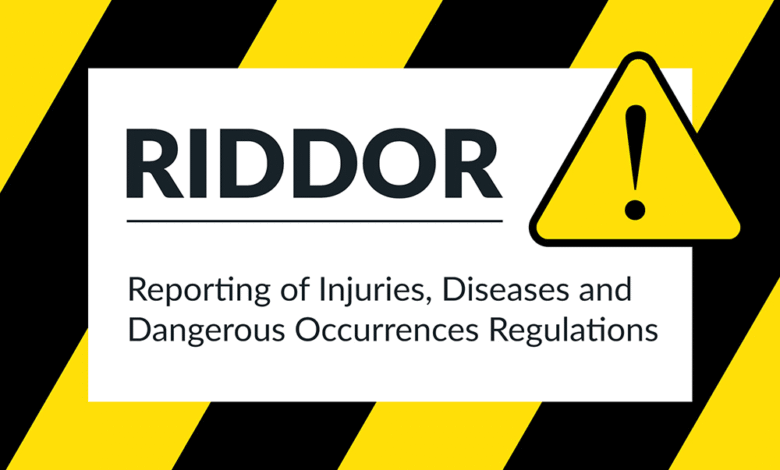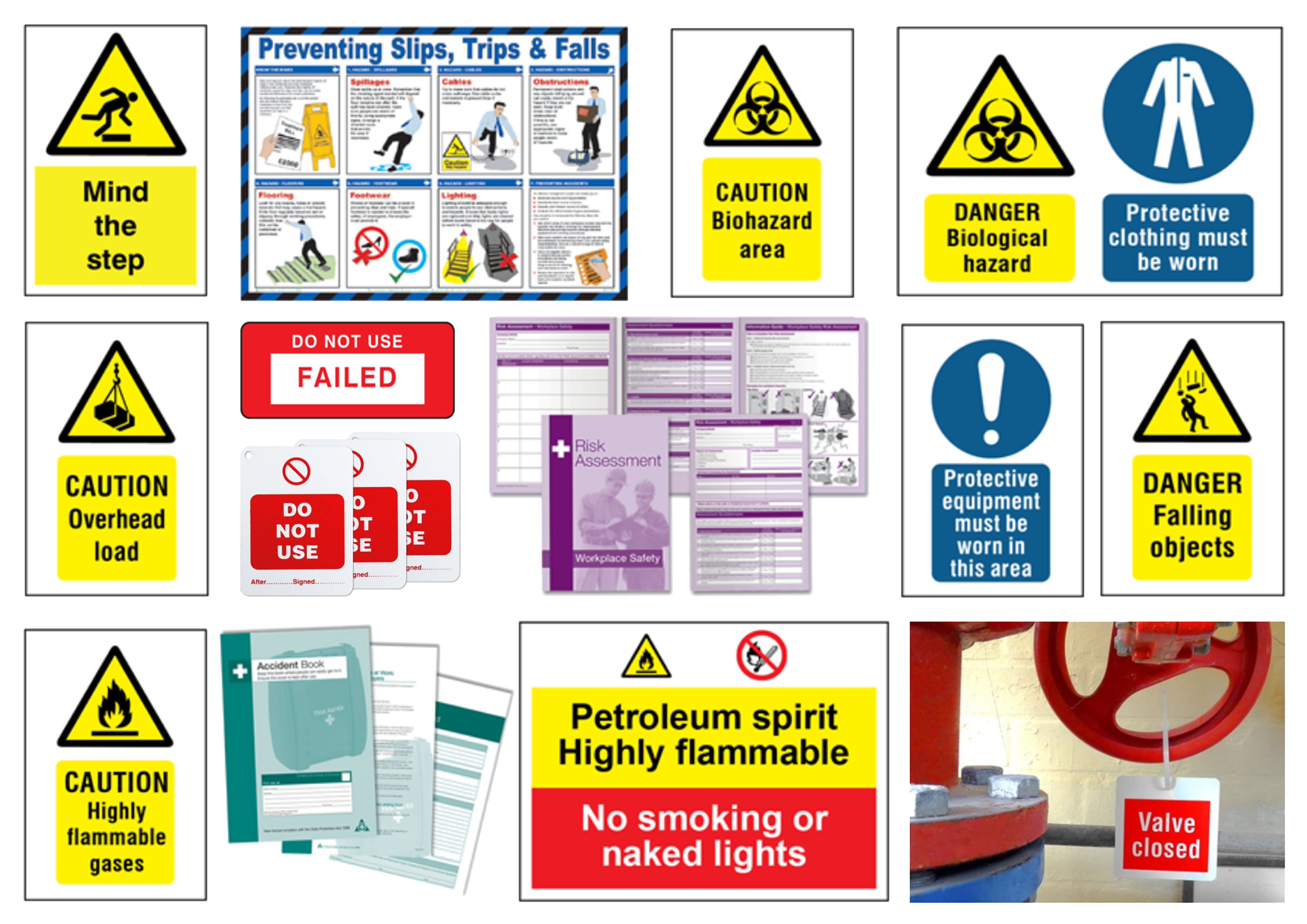RIDDOR Stand For – Reporting of Injuries, Diseases and Dangerous Occurrences Regulations Explained

When people search what does RIDDOR stand for, they are often seeking a clear explanation of a key piece of UK health and safety legislation. RIDDOR is central to protecting workers, visitors, and the public across a wide range of industries. By ensuring that serious incidents are formally reported, it allows authorities to take action, reduce risks, and improve workplace safety.
The phrase RIDDOR stand for may seem simple, but it represents a detailed legal framework that has wide-reaching consequences. From preventing workplace injuries to ensuring accountability in high-risk environments, RIDDOR has a direct impact on both employers and employees. In this article, we will explore its meaning, purpose, and practical application across different sectors in the United Kingdom.
What Does RIDDOR Stand For?
RIDDOR stands for the Reporting of Injuries, Diseases and Dangerous Occurrences Regulations. These regulations require employers, self-employed individuals, and people in control of work premises to report certain serious incidents to the Health and Safety Executive (HSE). The law exists to make sure that no major event goes unnoticed and that patterns of risk can be monitored.
When considering what does RIDDOR stand for in health and safety, it is important to understand the detail behind the words. “Injuries” refer to serious events such as amputations, fractures, or loss of vision. “Diseases” include occupational conditions such as asthma, dermatitis, or carpal tunnel syndrome. “Dangerous occurrences” cover major incidents like gas leaks, electrical failures, or structural collapses, even when no injury occurs.
The Purpose of RIDDOR in UK Health and Safety
The purpose of RIDDOR is not simply paperwork—it is about creating a culture of accountability and safety. By requiring organisations to record serious incidents, RIDDOR ensures that data is gathered and trends are identified. This means risks can be addressed more effectively, preventing future injuries and saving lives in the process.
When we ask what do the letters RIDDOR stand for, the deeper meaning lies in protecting workers. Without accurate reporting, dangerous conditions might be ignored or overlooked. RIDDOR creates a legal requirement that pushes employers to take safety seriously. It also gives authorities the evidence they need to intervene, enforce regulations, and prosecute when necessary.
What Needs to Be Reported Under RIDDOR?

Not every accident falls under RIDDOR. Only specific, serious events must be reported. For example, injuries such as broken bones (excluding fingers and toes), amputations, or permanent loss of sight must be formally recorded. The same applies to occupational diseases like work-related asthma or repetitive strain injuries that develop due to unsafe working conditions.
Dangerous occurrences are another major area of reporting. Even if no one is injured, incidents such as gas explosions, electrical faults, or equipment failures must be submitted under RIDDOR. This ensures that near-misses are also tracked, because they highlight weaknesses in safety systems that could lead to severe consequences if left unaddressed.
Who Must Report Under RIDDOR?
The responsibility for reporting falls primarily on employers, but also on those who are self-employed or in control of work premises. This ensures that no matter the size of the business or organisation, incidents are not left unreported. In practical terms, managers, supervisors, or designated health and safety officers usually carry out this duty.
Understanding what does RIDDOR stand for in care or construction helps clarify these responsibilities. For example, in a care home, it might be the duty of the manager to report incidents affecting residents or staff. In construction, the site supervisor would typically handle RIDDOR reports. This clear division of duty ensures compliance and consistency across sectors.
RIDDOR in Different Sectors
In the health and social care sector, RIDDOR is essential because vulnerable individuals are often involved. Serious incidents such as patient falls, infections, or staff injuries must be reported to safeguard both employees and residents. Asking what does RIDDOR stand for in care highlights the importance of safety within hospitals, care homes, and community health services.
The construction industry has its own unique risks, making RIDDOR vital. Falling from scaffolding, accidents with machinery, or structural failures are just some examples of reportable events. Other industries, such as hairdressing and childcare, may seem lower risk but still require compliance. A chemical burn in a salon or a playground accident in a school could both be incidents under RIDDOR.
The Legal Framework Behind RIDDOR
The current regulations were updated in 2013 to simplify and modernise the system. They form part of broader UK health and safety legislation and are enforced by the Health and Safety Executive. This legal framework makes it a crime to ignore RIDDOR reporting duties, with fines and prosecutions for those who fail to comply.
When asking what does the acronym RIDDOR stand for, it is important to recognise that it represents more than just an abbreviation. It symbolises a piece of legislation that ensures accountability in the workplace. Employers who neglect their duty risk more than legal penalties; they risk the safety and trust of their employees and the wider community.
How to File a RIDDOR Report
Filing a report is straightforward thanks to the HSE’s online reporting portal. Employers or duty holders must complete forms detailing the incident, those involved, and the circumstances. Certain events, such as fatalities, require immediate reporting, while others have set timeframes depending on their nature.
When considering what does RIDDOR stand for in first aid or childcare, the reporting process is consistent across all industries. Whether it is an injury in a nursery, a serious accident on a building site, or a chemical incident in a hair salon, the same forms and online system are used to ensure standardisation.
Why RIDDOR Compliance Matters
Compliance with RIDDOR is about more than meeting legal obligations. It is about creating a culture where safety is valued, risks are managed, and people feel secure in their workplace. By reporting incidents, employers contribute to national data that helps improve safety standards across the UK.
Understanding what RIDDOR stand for highlights why it should be taken seriously. Failing to comply not only risks fines and legal action but also damages reputation. More importantly, it puts lives at risk. Businesses that embrace RIDDOR reporting demonstrate commitment to employee welfare and long-term safety improvements.
Conclusion
So, what does RIDDOR stand for? It stands for the Reporting of Injuries, Diseases and Dangerous Occurrences Regulations, a cornerstone of UK health and safety law. These regulations ensure that serious incidents are not hidden or ignored, but reported and investigated so that lessons can be learned.
By understanding and following RIDDOR, employers can create safer workplaces, comply with the law, and protect staff and the public. RIDDOR is more than just an acronym—it is a system that saves lives and strengthens safety culture across industries from construction to care.
FAQs
What does RIDDOR stand for?
RIDDOR stands for the Reporting of Injuries, Diseases and Dangerous Occurrences Regulations.
What do the letters RIDDOR stand for?
R – Reporting, I – Injuries, D – Diseases, D – Dangerous, O – Occurrences, R – Regulations.
What does RIDDOR stand for in health and safety?
It ensures serious workplace incidents are reported to the Health and Safety Executive.
What does RIDDOR stand for in care?
It covers reporting injuries or dangerous events involving staff or residents in care settings.
What does RIDDOR stand for in construction?
It requires reporting serious accidents, near misses, and dangerous occurrences on construction sites.
What does RIDDOR stand for in first aid?
It applies when serious incidents occur that require reporting, even if first aid is given.
What does RIDDOR stand for in childcare?
It covers reporting accidents or dangerous occurrences involving children or staff in childcare settings.
What does the acronym RIDDOR stand for?
It is the same full form: Reporting of Injuries, Diseases and Dangerous Occurrences Regulations.
What’s RIDDOR stand for?
RIDDOR is the Reporting of Injuries, Diseases and Dangerous Occurrences Regulations.
What happens if RIDDOR is not reported?
Failure to report can lead to fines, legal action, and increased workplace risk.
Also Read: slimming world online offers




